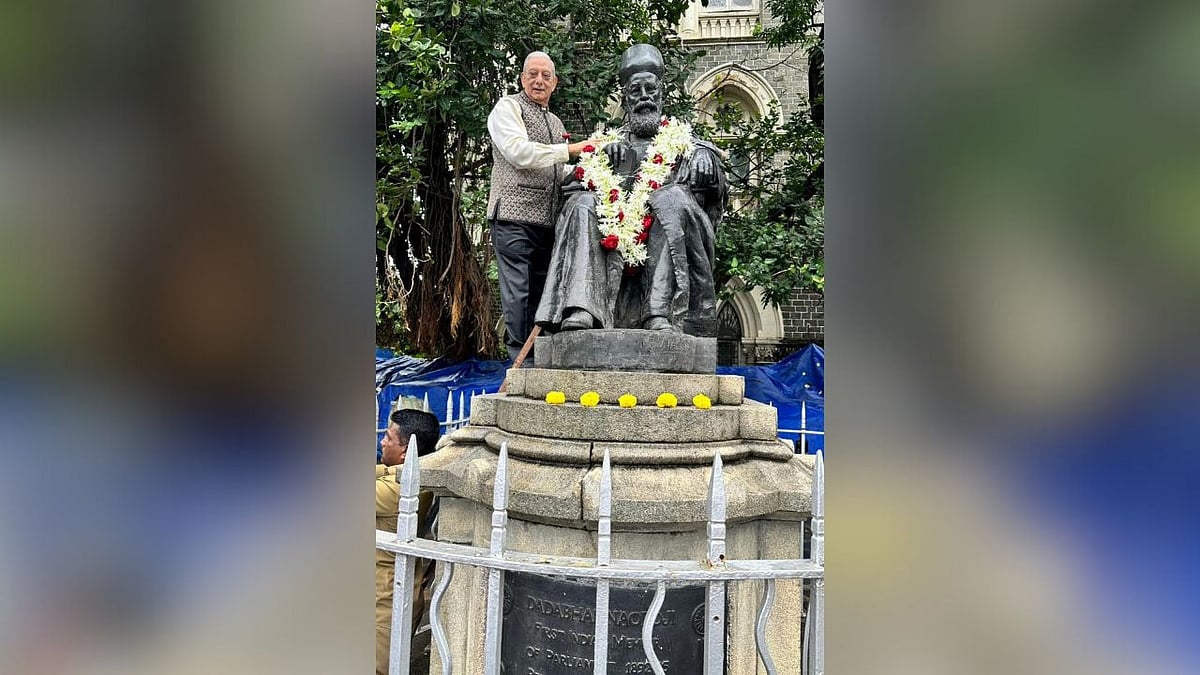Dadabhai Naoroji’s 200th Birth Anniversary Marked Quietly By Bombay Parsi Association
Members of the 140-year-old association gathered on Thursday near Hutatma Chowk to offer garlands to his statue on D N Road, named after the freedom fighter.

Dadabhai Naoroji’s 200th Birth Anniversary Marked Quietly By Bombay Parsi Association |
The 200th birth anniversary of independence leader, and one of the founder members of the Indian National Congress, Dadabhai Naoroji, on September 4 would have gone virtually unnoticed in the city where he died if not for the small ceremony organised by the Bombay Parsi Association.
Members of the 140-year-old association gathered on Thursday near Hutatma Chowk to offer garlands to his statue on D N Road, named after the freedom fighter.
Founder of the East India Association
Naoroji assumed various roles in life. He was a businessman, taught mathematics and philosophy at Elphinstone College in Mumbai, his alma mater, authored books, and became a member of the British parliament. He set up the East India Association, the forerunner of the INC, in 1867 in London. His fervent advocacy of India's freedom earned him the name 'Grand old man of India'. He was thrice elected president of the INC.
Members of the Bombay Parsi Association said it was sad that the anniversary passed in Mumbai with a public commemoration. "Now, we can not force anyone to remember him. We, in our small way, are ensuring that his memory is kept alive," said Xerxes Dastur, president of the association and a trustee of the Bombay Parsi Punchayet.
Preserved Legacy in Mumbai
Not much is known about Naoroji's life in Mumbai. He was born in Navsari, the hometown of the Tata family. He studied and taught in Mumbai before moving to Britain to work in a firm. He later started his own business and became a member of the House of Commons, the British equivalent of the Lok Sabha, as a member of the Liberal Party. He was the second person of Indian origin to sit in the British parliament. The calling card to the British parliament is preserved at the recently restored F D Alpaiwalla Museum, Hughes Road (N S Patkar Road). He died in Mumbai on June 30, 1917.
Propagating the Drain Theory
In Britain, he was the resident advocate for India's freedom, espousing the cause through his writing and lobbying. Much before contemporary writers such as Shashi Tharoor wrote about Britain's exploitation of India's wealth, Naoroji propagated the 'drain theory', which warned that colonial rule had led to the transfer of India's wealth.
RECENT STORIES
-
-
-
-
-